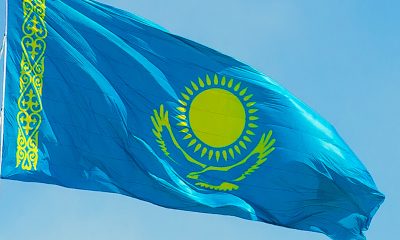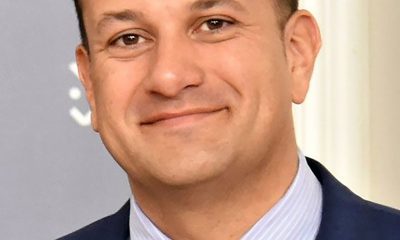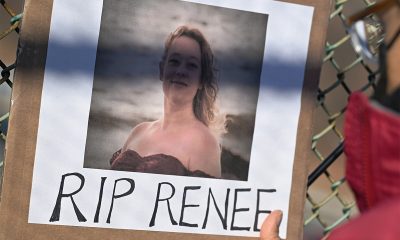Sports
Brittney Griner considered suicide in Russian prison
WNBA star sat down with Robin Roberts
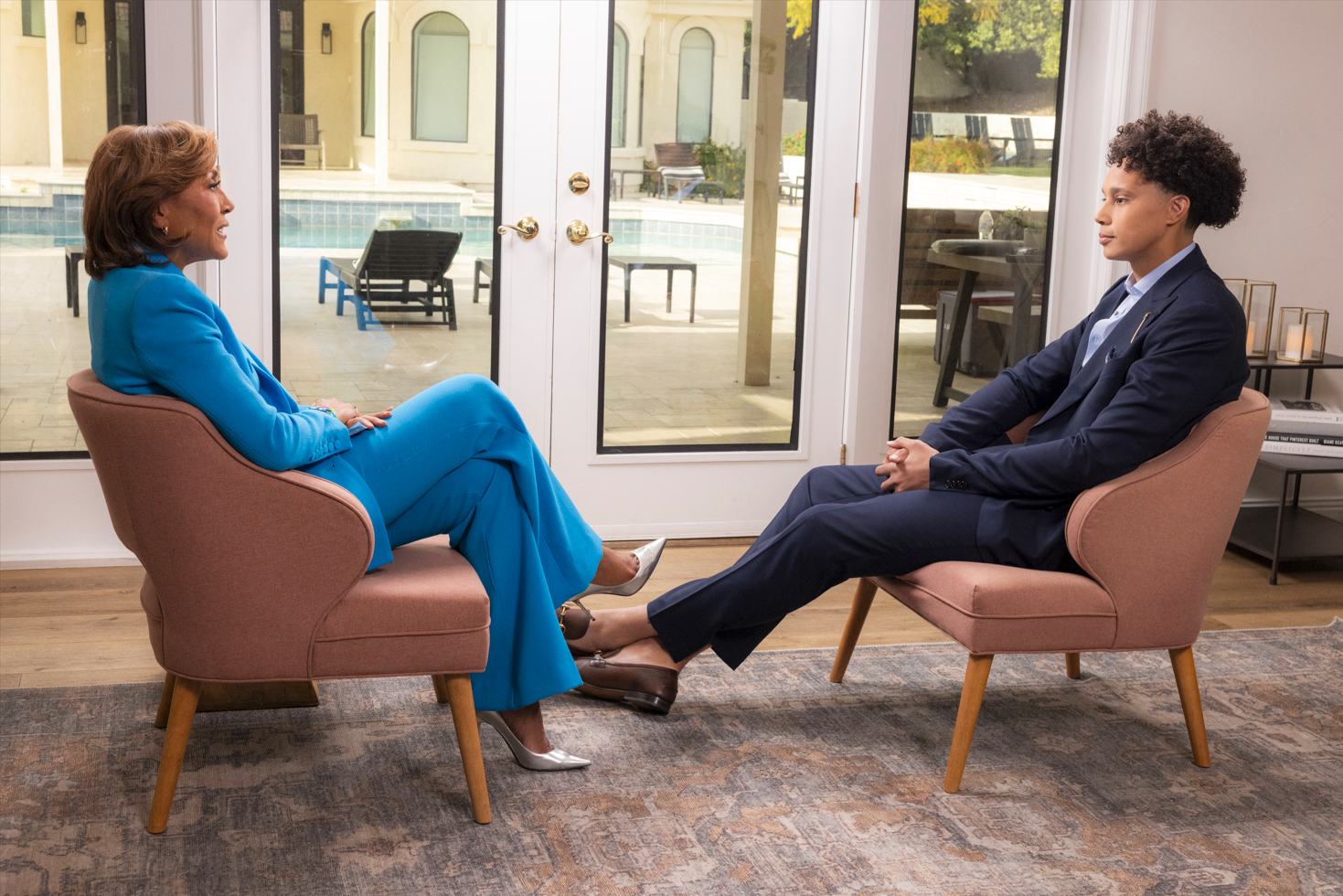
CONTENT WARNING: The following story discusses suicide ideation.
Her first few weeks behind bars in a Russian prison took a terrible toll on Brittney Griner, the lesbian WNBA star who is breaking her silence on the 10 months she was held on drug-related charges.
“I wanted to take my life more than once in the first weeks,” Griner told ABC’s Robin Roberts in a primetime interview Wednesday. “I felt like leaving here so badly.”
The two-time Olympic gold medalist and nine-time WNBA All-Star, who plays for the Phoenix Mercury, said she ultimately decided against suicide, partly because she feared Russian authorities would not release her body to her wife, Cherelle Griner.
Griner, 33, was arrested on Feb. 17, 2022, at Sheremetyevo International Airport in Khimki, a suburb of Moscow. Authorities said they found vape cartridges in her luggage containing cannabis oil, which is illegal in the country.
Griner told Roberts that was the result of a “mental lapse” on her part — packing the cannabis oil cartridges in her luggage, Griner said that she had overslept on the morning she was leaving for Russia to play during the WNBA’s off-season, which is how many of the league’s vastly underpaid players earn a living, compared to NBA players.
So, she packed while she was “in panic mode,” Griner said.
“My packing at that moment was just throwing all my stuff in there and zipping it up and saying, ‘OK, I’m ready,’” she told Roberts.
After landing in Russia, Griner realized that she had those two cannabis oil cartridges in her luggage as Russian security officers inspected her bag at the airport. She recalled the moment as a sinking feeling.
“I’m just like, ‘Oh, my God.’ Like, ‘How did I — how did I make this mistake?’” Griner said. “I could just visualize everything I worked so hard for just crumbling and going away.”
Russian authorities immediately arrested Griner, but her trial would not take place for five months. She described the horrible conditions of her imprisonment during that delay, saying that she didn’t always have toilet paper and that the toothpaste they gave her had expired about 15 years ago.
“That toothpaste was expired,” she said. “We used to put it on the black mold to kill the mold on the walls.”
“The mattress had a huge blood stain on it, and they give you these thin two sheets,” she added. “So you’re basically laying on bars.”
On July 7, 2022, Griner pleaded guilty at her trial to drug charges, admitting that she had the vape cartridges containing cannabis oil but stating she put them in her luggage unintentionally. She testified that she had packed the cartridges by accident, and had “no intention” to break Russian law.
Roberts pressed Griner on this point: “You know there are those who say, ‘Come on. How did you not know that you had cartridges in your luggage?’”
“It’s just so easy to have a mental lapse,” Griner replied. “Granted, my mental lapse was on a more grand scale. But it doesn’t take away from how that can happen,” she explained.
Griner was sentenced to nine years in prison on Aug. 4, 2022, and in October 2022, a judge denied the appeal filed by Griner’s attorneys.
The sentence landed Griner in a penal colony in the Russian region of Mordovia.
“It’s a work camp. You go there to work,” said Griner. “There’s no rest.” Her job was cutting fabric for Russian military uniforms.
“What were the conditions like there?” Roberts asked.
“Really cold,” Griner said. So cold that her health was impacted and she decided to chop off her long dreadlocks.
“What was that like losing that part of you, too?” Roberts asked Griner.
“Honestly, it just had to happen. We had spiders above my bed — making nests,” she said. “My dreads started to freeze,” she added. “They would just stay wet and cold and I was getting sick. You’ve gotta do what you’ve gotta do to survive.”
Her arrest came around the same time as Russia’s invasion of Ukraine, further increasing tensions between Russia and the U.S. But as the Los Angeles Blade reported on Dec, 8, 2022, Russia agreed to release Griner in exchange for Russian arms dealer Viktor Bout.
However, before winning her freedom, Griner revealed authorities forced her to write a letter to Russian President Vladimir Putin.
“They made me write this letter. It was in Russian,” she said. “I had to ask for forgiveness and thanks from their so-called great leader. I didn’t want to do it, but at the same time I wanted to come home.”
Griner said her heart sank upon boarding the plane to freedom and finding that Paul Whelan, another American the White House said was “wrongfully detained,” wasn’t leaving Russia with her.
“I walked on and didn’t see him, maybe he’s next. Maybe they will bring him next,” she said. “They closed the door, and I was like, are you serious? You’re not going to let this man come home now.”
Griner recounts on the experience in “Coming Home,” a memoir set to be released on May 7.
988 is the National Suicide and Crisis Lifeline and is available 24/7 via phone, text or chat to everyone of all ages, orientations and identities. If you are a transgender, nonbinary, or gender-nonconforming person considering suicide, Trans Lifeline can be reached at 877-565-8860. LGBTQ+ youth (ages 24 and younger) can reach the Trevor Project Lifeline at 1-866-488-7386. You can still also contact the National Suicide Prevention Lifeline at 1-800-273-8255 24 hours a day, and it’s available to people of all ages and identities.

Additional resources:
If you are in a life-threatening situation, please dial 911.
If you are in crisis, please dial 988 or contact Rainbow Youth Project directly at +1 (317) 643-4888

The Washington Capitals will host Pride Night on Saturday, Jan. 17, when they host the Florida Panthers at Capital One Arena. A special ticket offer featuring a Pride-themed Capitals rainbow jersey is available at washcaps.com.
Fans are invited to a pre-game Block Party at District E beginning at 5 p.m. The event will feature a performance by the band NovaKane. Specialty happy hour food and beverages will be available, as well as giveaways. There will also be a presence by several local LGBTQ+ community organizations.
Egypt
Iran, Egypt object to playing in Seattle World Cup ‘Pride Match’
Game to take place on June 26

Iran and Egypt have objected to playing in a “Pride Match” that will take place in Seattle during the 2026 World Cup.
The Egyptian Football Association on Tuesday said it told FIFA Secretary General Mattias Grafström in a letter that “it categorically rejects holding any activities related to supporting (homosexuality) during the match between the Egyptian national team and Iran, scheduled to be held in Seattle, USA, on June 26, 2026, in the third round of the group stage of the 2026 World Cup.” Football Federation Islamic Republic of Iran President Mehdi Taj told ISNA, a semi-official Iranian news agency that both his country and Egypt “protested this issue.”
The 2026 World Cup will take place in the U.S., Canada, and Mexico. The draw took place at the Kennedy Center on Dec. 5.
Iran is among the handful of countries in which consensual same-sex sexual relations remain punishable by death.
The State Department’s 2023 human rights report notes that while Egyptian law “did not explicitly criminalize consensual same-sex sexual activity, authorities regularly arrested and prosecuted LGBTQI+ persons on charges including ‘debauchery,’ prostitution, and ‘violating family values.’” Egyptian authorities “also reportedly prosecuted LGBTQI+ individuals for ‘misuse of social media.’”
“This resulted in de facto criminalization of same-sex conduct and identity,” notes the report.
The 2024 human rights report the State Department released earlier this year did not include LGBTQ-specific references.
Soccer has ‘unique power to unite people across borders, cultures, and beliefs’
The June 26 match between Iran and Egypt coincides with Seattle Pride. The Washington Post reported the Seattle FIFA World Cup 2026 Local Organizing Committee decided to hold the “Pride Match” before last week’s draw.
“As the Local Organizing Committee, SeattleFWC26’s role is to prepare our city to host the matches and manage the city experience outside of Seattle Stadium,” said SeattleFWC26 Vice President of Communications Hana Tadesse in a statement the committee sent to the Washington Blade on Wednesday. “SeattleFWC26 is moving forward as planned with our community programming outside the stadium during Pride weekend and throughout the tournament, partnering with LGBTQ+ leaders, artists, and business owners to elevate existing Pride celebrations across Washington.”
“Football has a unique power to unite people across borders, cultures, and beliefs,” added Tadeese. “The Pacific Northwest is home to one of the nation’s largest Iranian-American communities, a thriving Egyptian diaspora, and rich communities representing all nations we’re hosting in Seattle. We’re committed to ensuring all residents and visitors experience the warmth, respect, and dignity that defines our region.”
The 2034 World Cup will take place in Saudi Arabia.
Consensual same-sex sexual relations remain punishable by death in the country. The 2022 World Cup took place in neighboring Qatar, despite concerns over the country’s anti-LGBTQ rights record.
Sports
Gay speedskater racing toward a more inclusive future in sports
Conor McDermott-Mostowy says anti-DEI push is driving away corporate sponsors
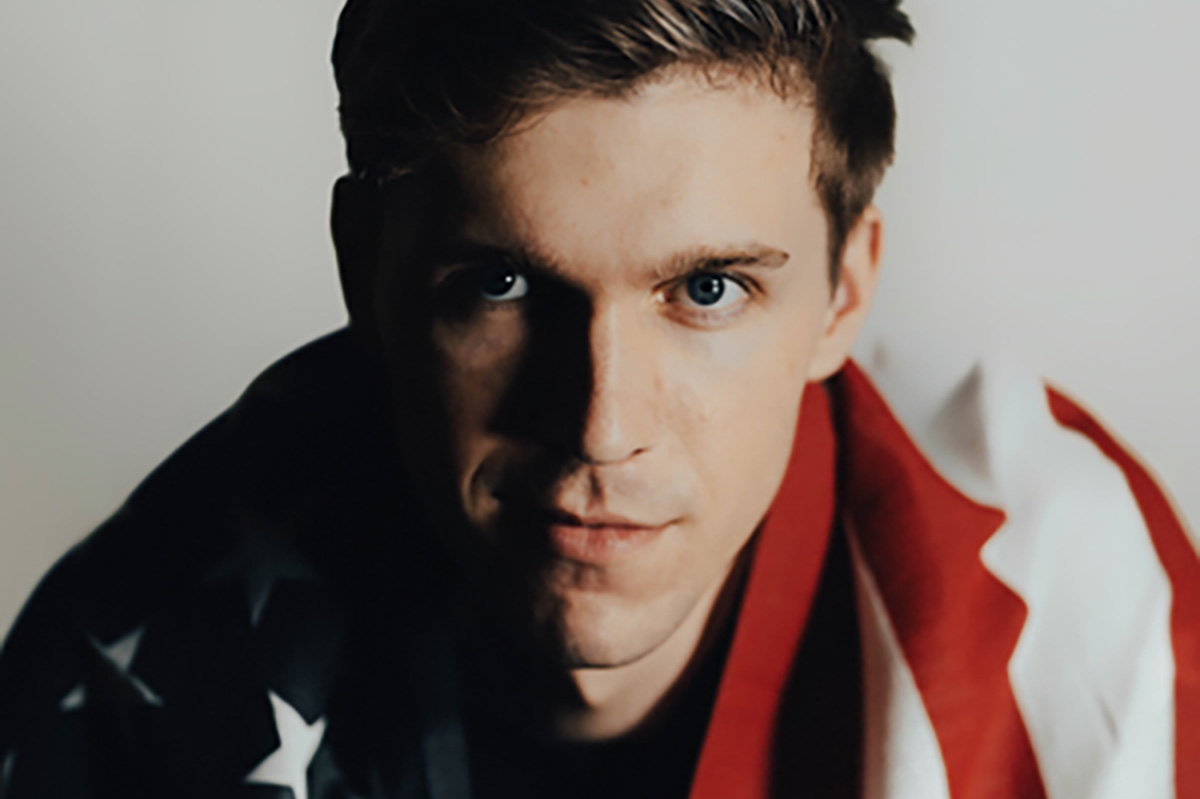
LOS ANGELES — As the countdown begins to the February Winter Olympic Games in Milan, Pride House LA is shining a spotlight on queer athletes who are breaking boundaries both on and off the field. Among them is Team USA speedskater Conor McDermott-Mostowy – a fierce competitor and proud member of the queer community. With blistering speed on the ice and a steadfast commitment to equity in sports, Conor is doing so much more than winning medals – he’s redefining what it means to represent one’s country while representing one’s community.
McDermott-Mostowy is one step closer to the 2026 Winter Olympics after winning the recent silver and bronze medals at the U.S. Championships in speedskating. He appeared at a Nov. 1 event presented by Out Athlete Fund/Pride House LA in the organization’s efforts to raise funds to support Conor and other out athletes as they pursue their Olympic dreams in Milan 2026 and beyond.The Blade spoke to the star athlete to talk about resilience, representation, and the legacy he hopes to leave one day.
Blade: Huge congrats, Conor! Winning a World Cup gold is no small feat. Do you feel like this win proved something to the world – or more importantly, to yourself?
McDermott-Mostowy: Winning gold with my team last year was definitely a major goal achieved. That said, the event we won isn’t yet an Olympic event. The races that have had the most profound impact on me actually happened two years ago.
The first was the team pursuit in Obihiro, Japan. I’d always been more of an alternate for that event, since it’s typically raced by skaters who compete in both the 1500m and 5000m. But I’d been itching for the opportunity to race it at the World Cup level. I finally got that chance when a teammate had to pull out at the last minute due to a back issue. We led the race through six of eight laps, ultimately finishing third. While it was a little disappointing to fall out of the lead, I was proud to prove that I could contribute meaningfully and help the team medal.
The second race was later that year in Salt Lake City, my home ice. After competing in Japan, I came down with a lung infection that affected my performance at the next few World Cups. Fortunately, I had time to recover before the North American World Cups and World Championships. At the Salt Lake City World Cup, I was balancing competition with completing my undergraduate degree. I didn’t know what to expect, but I ended up finishing fifth in the 1000m—my highest individual finish ever—and posted a time of 1:06.91. That’s a very significant time in speedskating; only three other Americans have gone under 1:07 in that event, all of whom became world champions. That result felt like a turning point, showing me that an Olympic or World Championship medal wasn’t just a dream—it was within reach.
Blade: This PrideHouse LA event is a huge moment. What does that support from the queer community mean to you?
McDermott-Mostowy: It’s incredibly meaningful. Being queer in Olympic sport can be very isolating, both inside and outside the sport. I barely have time to socialize outside of skating, and relocating to Salt Lake City doesn’t exactly help when it comes to queer community. So having that kind of solidarity and support from the wider LGBTQ+ community really means a lot.
Blade: Do you remember the moment you realized skating could take you all the way to the Olympics?
McDermott-Mostowy: There hasn’t been one single moment. It’s been a series of them. Over the years, I’ve had many races that shattered the limits I thought I had and inspired me to reach higher. That Salt Lake City race was one of them. It made me realize I shouldn’t just aim for the Olympics. I should aim for medals.
Another key moment came in 2018 at my last Junior World Cup, when my teammate and I finished 2nd and 3rd in the mass start. That event is similar to short track but held on a long track. It was my first full year focusing on long track after previously dabbling in it, and we had no expectation of medaling. But after we did, I realized I might actually have a future in this discipline—and that I could be competitive on the world stage. It was a pivotal realization, especially as I was trying to decide whether to continue skating or pursue a traditional college experience.
Blade: What initially drew you to speedskating? How did you get into the sport—and what’s kept you motivated?
McDermott-Mostowy: I grew up on skates. I started at age two and became a strong skater early on. But I never had any interest in hockey or figure skating. One winter, I was skating with my family on the C&O Canal in Washington, D.C., when a guy skated past us on these wild-looking speed skates. I was immediately intrigued. My parents found a local club, which happened to be run by three-time Olympian Nathaniel Mills, and I was hooked.
What’s kept me going is simple: I love it. This isn’t a sport you get rich in. I’ve only earned more than $20,000 a year twice in my career, and you can’t use it to pay for college either. The motivation has to come from within—the pursuit of excellence, the dream of going to the Olympics, and pure love for the sport.
Blade: What’s been your toughest race to date, and what did it teach you?
McDermott-Mostowy: That would be the team pursuit in Japan. I wasn’t expecting to race it and had already competed in a full weekend of events before getting the call. Team pursuit is arguably the toughest event in speedskating. Stepping up without being mentally or physically prepared was a challenge, but I did it. It showed me I could push through, even under extreme circumstances.
Blade: You’ve made headlines not just for your speed, but for your openness. What was it like coming out publicly in the world of elite sport?
McDermott-Mostowy: By the time I was publicly identified as gay, I had already been out to anyone who asked. So “coming out” doesn’t feel like the right term. It wasn’t a big declaration. I had the benefit of growing up seeing openly gay athletes and being part of a supportive community. I never felt the need to hide who I was.
Eventually, as I started achieving more on the ice, people began noticing me and the content I posted, and they put two and two together. When I was asked to speak publicly about being an openly gay athlete in speedskating, I didn’t hesitate.
Blade: What have been the biggest challenges in your career – physically, mentally, or otherwise?
McDermott-Mostowy: Honestly, my entire career has been about overcoming challenges. The two biggest obstacles have been illness and finances.
I’ve dealt with asthma, a norovirus that derailed my chances in 2022, and a fatigue condition last season that affected my performance. These setbacks take a toll. Not just physically, but mentally. When you invest everything into your sport, being forced to pause or scale back is a huge emotional hurdle.
Financially, speedskating is a tough path. Even as a consistent top-20 skater in the world, I’ve only broken $20k twice in a year, and we’re paid for just nine months, even though we train year-round. I’ve leaned on friends and family for support many times just to make ends meet.
Blade: Have you ever been told – explicitly or implicitly – that being openly gay could hurt your chances with sponsors or coaches?
McDermott-Mostowy: Never with coaches. In our sport, selections are based on the clock, not someone’s opinion. My coaches have always been great.
But when it comes to sponsorships, especially over the past year, I’ve noticed a shift. As anti-DEI sentiment grows, brands are backing away from anything that could be seen as “controversial.” Being openly gay seems to fall into that category now. Since most of our income comes from sponsorships, that retreat is deeply felt.

